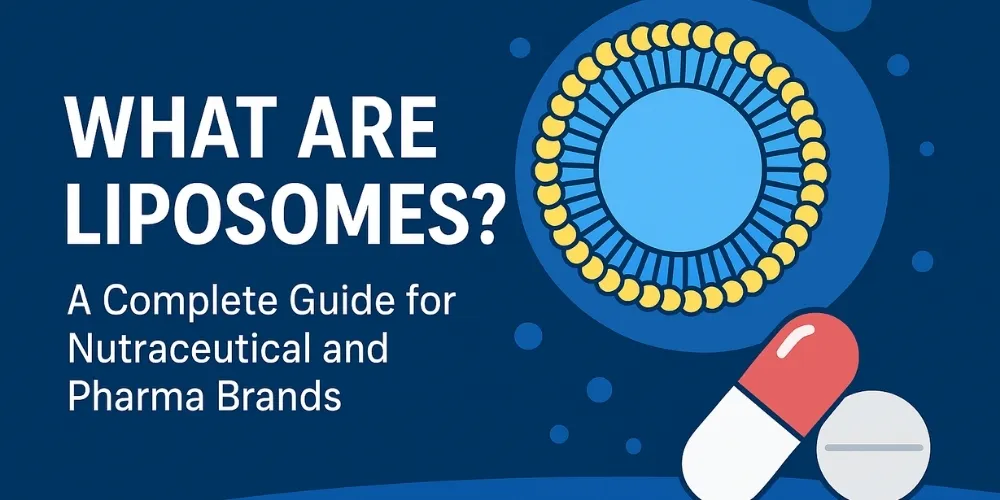What Are Liposomes? A Complete Guide for Nutraceutical and Pharma Brands
What Are Liposomes?
Liposomes are microscopic, spherical vesicles composed of one or more phospholipid bilayers that encapsulate both hydrophilic and lipophilic compounds. They are widely used in pharmaceutical, nutraceutical, and cosmetic industries to improve the stability and absorption of active ingredients.
These lipid-based carriers are typically made using phosphatidylcholine (PC) — a naturally occurring phospholipid derived from soybean or sunflower lecithin. Liposomes act as intelligent delivery vehicles that enhance bioavailability, protect sensitive molecules, and provide controlled or targeted release of nutrients or drugs.
In short, liposomes are changing how the world delivers health and nutrition.
Structure and Composition of Liposomes
Liposomes mimic the structure of biological cell membranes. Their key components include:
1. Phospholipid Bilayer:
Forms the main membrane using natural phospholipids like Phosphatidylcholine (PC) from lecithin.
2. Aqueous Core:
Holds water-soluble molecules such as vitamins or hydrophilic drugs.
3. Hydrophobic Region:
Encapsulates fat-soluble actives like CoQ10 or curcumin.
This dual nature allows liposomes to encapsulate a wide range of compounds, making them versatile for drug delivery, nutrient encapsulation, and cosmetic formulations.
Why Liposomes Are Important in Pharmaceuticals
In pharmaceuticals, liposomes offer controlled and targeted delivery of therapeutic agents. Their biocompatible structure minimizes toxicity while improving efficacy.
Key advantages include:
- Enhanced drug solubility and bioavailability
- Reduced side effects and toxicity
- Protection of sensitive actives from degradation
- Targeted delivery to specific tissues or organs
Pharma companies increasingly use Hydrogenated Phosphatidylcholine (HSPC) for stable liposomal drug delivery systems — an area where Amitex Agro Products Pvt. Ltd. provides specialized expertise
Liposomes in Nutraceuticals & Dietary Supplements
The nutraceutical industry has embraced liposomal delivery to address one key challenge — poor nutrient absorption. Liposomal encapsulation allows nutrients like Vitamin C, Vitamin D3, Curcumin, and Glutathione to bypass degradation in the digestive system and reach the bloodstream more effectively.
This technology offers:
- Higher absorption rates compared to conventional supplements


